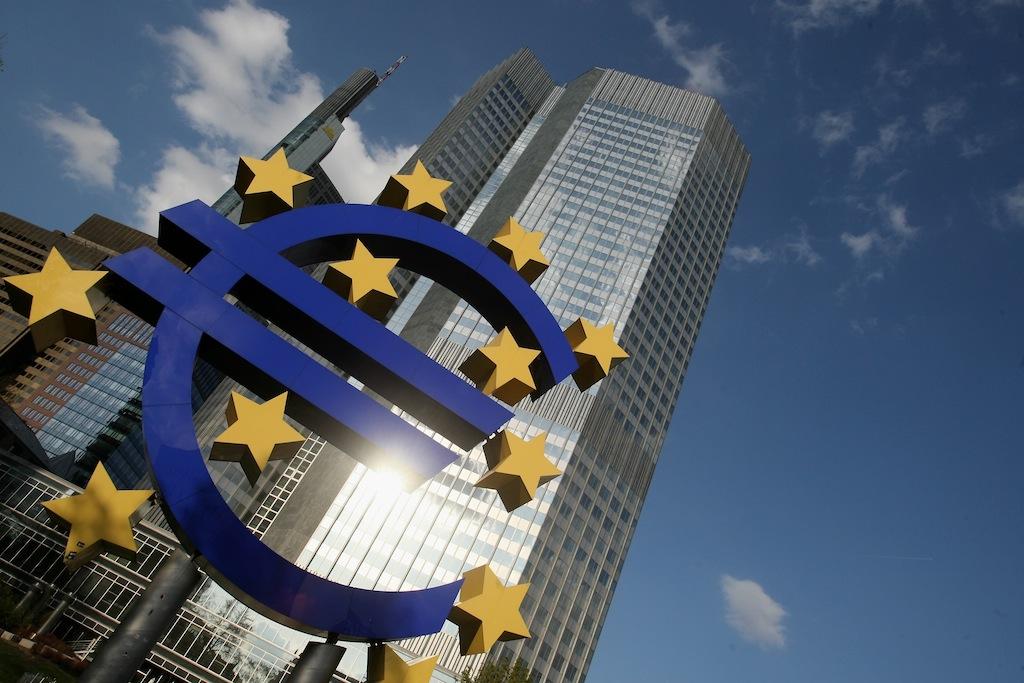Euro zone creeps into double dip recession
FRANKFURT AM MAIN, GERMANY: A huge euro logo stands in front of the headquarters of the European Central Bank (ECB) on April 9, 2009 in Frankfurt am Main, Germany.
Europe's financial problems continue to worsen as the 17-member euro zone officially slipped back into recession.
Official figures Thursday showed that the euro zone contracted by 0.1 percent in the July to September period from the quarter before. That follows a 0.2 percent decline in the second quarter. Those two quarters of falling output together mean that the euro zone is officially back in its second recession of the financial crisis, reports AP.
Europe's strongest economies continued to have modest growth but were dragged down by the sprawling debt crisis striking nations such as Spain and Greece.
"We are now getting into a double-dip recession which is entirely self-made," Paul de Grauwe from the London School of Economics told the Guardian newspaper.
"It is a result of excessive austerity in southern countries and unwillingness in the north to do anything else. Countries in the south have to reduce their deficits, but they cannot if those in the north with a surplus are not willing to help with stimulus. This divide, even hostility, between countries is stronger than I have seen in the last 20 years. The degree of austerity has now put so many people in terrible conditions that they reject all of this. That's a very dangerous situation," de Grauwe said.
Both Germany and France managed modest growth in the third quarter but were unable to keep the euro zone out of recession. The Netherlands saw the biggest drop in the last quarter – falling by 1.1 percent.
“An end to the recession in the euro zone is still out of sight,” said Christoph Weil, economist at Commerzbank in Frankfurt told the Financial Times.
“A decline in GDP now looks likely for Germany too in the last quarter. Given the uncertain future of the monetary union, businesses are hesitating with investment.”
According to AP, there are five European countries officially in recession that have brought down economic output for the whole euro zone.
Greece, Spain, Italy, Portugal and Cyprus are also at the center of Europe's debt crisis and are imposing strict austerity measures, including cutting salaries and pensions and increasing taxes, in an attempt to cut their deficits.
According to the BBC, Greece reported on Monday that its economy had shrunk by a staggering 7.2 percent in the third quarter compared with a year earlier.
The Spanish economy has been shrinking for 15 months and is now in its second year of recession.
The tough austerity measures are sparking protests across the continent. Major labor unions in Spain, Portugal and Italy staged a day of protests Wednesday, managing to shut down industry in the biggest coordinated protest of the EU budget cuts.
We want to hear your feedback so we can keep improving our website, theworld.org. Please fill out this quick survey and let us know your thoughts (your answers will be anonymous). Thanks for your time!
